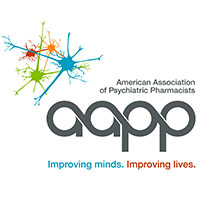Most Important CBD Information
- CBD alone does not cause the same “high” as marijuana products.
- Some CBD products that claim to be pure may have added THC.
- Most CBD products are illegal according to the federal government.
- More studies are needed to show if CBD can be helpful for medical conditions.
- You must be careful if taking CBD products because they are not regulated and may interact with your other medications.
- There is one approved prescription CBD product for the treatment of certain seizures, Epidiolex®
What Is Cannabidiol (CBD)?1,2
Cannabis (or marijuana) has been an illegal substance in the United States since 1970. CBD is one of the main chemicals in cannabis. CBD does not cause the same effect of “getting high” as marijuana because it does not contain the chemical tetrahydrocannabinol (THC). CBD can be bought in the form of an oil, capsules, shampoo, skin cream, and other formulations.
Is CBD Legal?1
The answer is both yes and no. It is considered illegal to add CBD to food or market it as a dietary supplement. However, some products may meet the description of “hemp” which is legal to sell under federal law. “Hemp” is made up of cannabis components with low THC quantities. This differs from marijuana which has higher levels of THC.
While certain “hemp” products containing CBD may be legally sold in a store near you, they are often marketed illegally for medical purposes that have not been approved by the Food and Drug Administration (FDA). Beware of CBD products such as oils and lotions that claim they can “treat cancer” or “help chronic pain”. The safety of these products, how well they work, how they interact in the body, and how they interact with other medications has not been studied. State laws regarding CBD can differ between states, with some states allowing CBD products to be sold for medical purposes. This contradicts federal laws and is not the same as FDA approval.
What Are Potential Dangers Of Using CBD Products?3,4,5,6,7
Most CBD products are not tested for labeling accuracy, safety, or effectiveness. The FDA has tested several CBD products and found that they do not have the levels of CBD that are claimed on the label. Some products have also been found to have higher levels of THC than marketed. Side effects of CBD use include tiredness, diarrhea, changes in appetite, and changes in weight. Other potential harms include liver injury or damage to fertility. CBD vaping products may cause lung damage. CBD could also interact with other medications such as blood thinning medications, seizure medications, and medications for infections. It is important to let your doctor or pharmacist know if you are taking CBD products.
How Can CBD Products Be Helpful?4,8,9
- Thought to have no addiction potential (unlike cannabis or THC)
- Some studies support CBD use for reducing seizures in people with certain seizure conditions
- More studies are needed to know if CBD could be helpful for these conditions:
- Anxiety
- Psychosis
- Pain relief
- Nausea
- Parkinson’s Disease
- Infections
- Anxiety
What Is Epidiolex®?10
There is only one Food and Drug Administration (FDA) approved CBD medication, Epidiolex®. There are no other FDA approved CBD products for medical uses. Epidiolex® is a solution taken by mouth that is a purified form of CBD that can be used to treat certain seizure disorders. It cannot be used to treat any other health conditions. It is available only with a prescription from your doctor. Some side effects of Epidiolex® include sleepiness, changes in liver functioning, decreased appetite, diarrhea, weakness, or worsened sleep.
Provided by

(April 2023)
Austin Smith, PharmD, BCPP, January 2020
To view the references for this resource, please visit aapp.org/428322.
©2022 American Association of Psychiatric Pharmacists (AAPP). AAPP makes this document available under the Creative Commons Attribution-NoDerivatives 4.0 International License. Last Updated: January 2016.
This information is being provided as a community outreach effort of the American Association of Psychiatric Pharmacists. This information is for educational and informational purposes only and is not medical advice. This information contains a summary of important points and is not an exhaustive review of information about the topic. Always seek the advice of a physician or other qualified medical professional with any questions you may have regarding medications or medical conditions. Never delay seeking professional medical advice or disregard medical professional advice as a result of any information provided herein. The American Association of Psychiatric Pharmacists disclaims any and all liability alleged as a result of the information provided herein.


